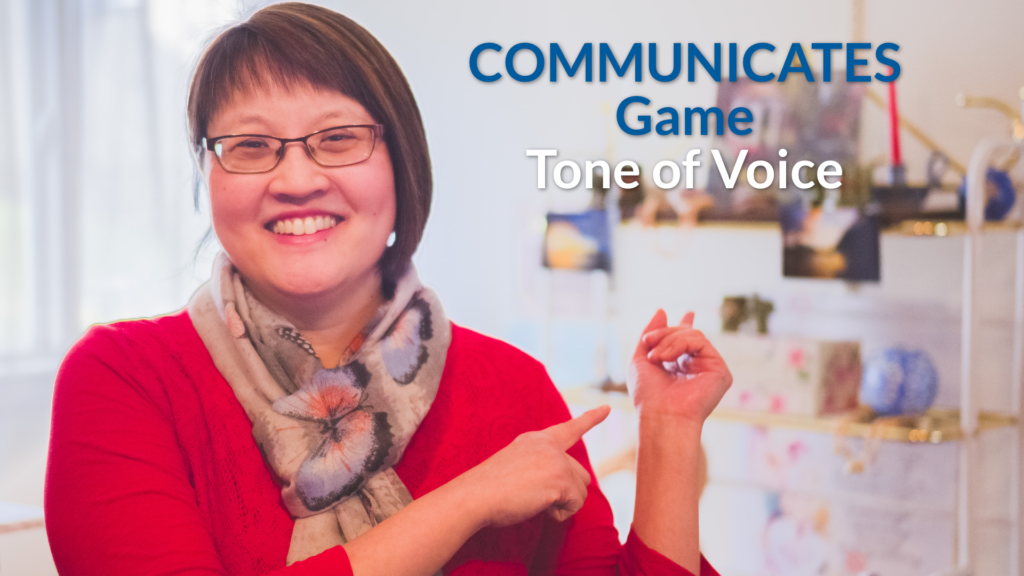Tone of Voice | The COMMUNICATES Game

If you’re an introvert, sensitive, people pleaser, who would love to openly and confidently communicate your thoughts, feelings, and desires without the fear of arguments or criticisms: Stay tuned for fun and valuable information. Hi, I’m Grace, and welcome to the COMMUNICATES game video series, or what I like to call the COMMUNICATES game. Now, […]
Let’s Play COMMUNICATES (Tone of Voice)

Do certain noises or sounds make you happy while other noises or sounds can annoy you? What do you feel when you hear an ice cream van? Happy or perhaps nostalgic. What about a siren? Most likely annoyed by the loud sound of a siren. Your tone of voice can be the same way. Some […]
Awareness | The COMMUNICATES Game

https://vimeo.com/863368872?share=copy If you’re a sensitive, introverted, conflict phobic person who is also a people pleaser, and we’d love to be able to openly and confidently communicate your thoughts, feelings and desires without the fear of arguments or criticisms, so that you can have a happy and harmonious relationship with your partner. Stay tuned for fun […]
Let’s Play COMMUNICATES (Awareness of Words and Actions)

Sometimes you can become upset, even overwhelmingly so, that you might not be aware of your actions. You might not even be aware of the words that are coming out of your mouth. You know you’re angry and upset, and your expression shows it. How aware are you of what you’re saying and acting during […]
Choices | The COMMUNICATES Game

If you’re a sensitive, introverted, conflict phobic person who is also a people pleaser, and you would love to openly and confidently communicate your thoughts, feelings and desires, without the fear of arguments or criticisms, so that you can have a happy and harmonious relationship with your partner. Stay tuned for fun and valuable information. […]
Let’s Play COMMUNICATES (Choose Your Path)

Everyone has a certain path or journey that he or she is traveling on during his or her lifetime. Including you. As you travel on your path during your journey, choices or opportunities will be presented to you. You will look at your opportunities and choices and decide the one that is best for you […]
Inspiration | The COMMUNICATES Game

If you’re a sensitive, introverted and conflict phobic person, who would love to be able to communicate your thoughts, feelings and desires, without the fear of arguments and criticisms, so that you can have a happy and harmonious relationship with your partner, so that you will never feel lonely again in your relationship. Stay tuned […]
GraceSOULutions Featured In Influencer Daily

I’m so excited to announce that I was featured in Influencer Daily! Here is a brief excerpt from the article: In a world where effective communication is paramount to successful relationships, Grace CW Liu, an expert Communication Navigator, is empowering sensitive, introverted women to confidently express their thoughts, feelings, and desires. Through her innovative approach […]
Let’s Play COMMUNICATES (Inspiration)

It doesn’t matter if you’re playing an actual board game, sports, the game of life, or a communication game, who doesn’t want to be inspired or want to inspire? The definition of inspire means “to make someone feel that they want to do something and can do it”. You can have a fun and constructive […]
GraceSOULutions Featured In Economic Insider

I’m absolutely thrilled to have been featured in Economic Insider! Here is a brief excerpt from the article: In today’s fast-paced world, where communication has become more digital and impersonal, it’s easy to feel like nobody is listening. Misunderstandings and conflicts can arise due to poor communication skills, leading to strained relationships and even breakups. […]
